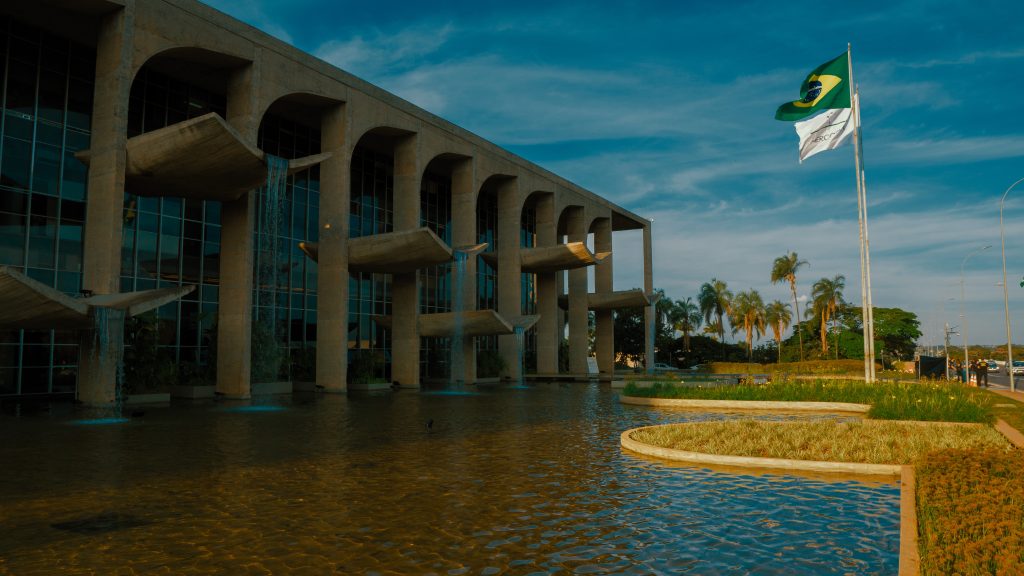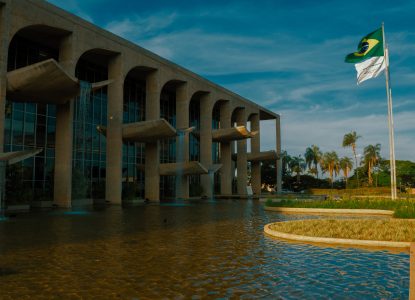By Prof. W. Cole Durham. Jr., President, G20 Interfaith Forum Association
–
On August 8-10, The International Center for Law and Religious Studies (ICLRS) and Centro Brasileiro de Estudos em Direito e Religião (CEDIRE) held a conference involving religious and civil society leaders from around the world entitled “Building Bridges, Breaking Barriers: The Role of Religious Freedom in Building a Free, Just, and Mutually Supportive Society. The conference, held in Brasilia, Brazil, was especially significant due to Brazil’s upcoming G20 Presidency in 2024. Several delegates from the G20 Interfaith Forum Association were in attendance. This three-part essay is taken directly from Prof. Durham’s keynote address at the symposium. Click the links to read Part 2 and Part 3.
– – –
Introduction
It is a particular honor for me to launch our discussions at this Second Brazilian Symposium on Religious Freedom. I have had several opportunities over the past two decades to visit Brazil and I have been consistently impressed with the strong commitment of Brazil’s people and its government to the highest standards of freedom of religion or belief. Article 5(VI) of the Brazilian Constitution provides that:
“freedom of conscience and belief is inviolable, assuring free exercise of religious beliefs and guaranteeing, as set forth in law, protection of places of worship and their rites.”[1]
This clause provides broad protection for religious freedom which is generally respected by both the government and the populace. As in all societies, there are recurring problems and imperfections in enforcement, but in general, it is fair to say that Brazil is a country with a particularly strong record when it comes to religious freedom. I believe one of the implications of this reality is that Brazilians will increasingly have opportunities and responsibilities to share this heritage of freedom not only with their fellow citizens, but with others around the world. Among other things, I am very conscious that in just a few months, Brazil will assume the presidency of the G20. This will open unique opportunities to share how its commitment to freedom of religion or belief has had not only intrinsic value for the country, but has also contributed to strengthened achievements in many other areas. I believe that Brazil has the capacity to exemplify what I will be talking about today: how religious freedom rights contribute to building a free, just and mutually supportive society.
Religious Freedom Challenges
This is not to say that Brazil has an easy task in this regard. We live in a time of grave religious freedom challenges. While we join with others who respond to the tragedy of genocide with the solemn exclamation, “never again!,” we are all too conscious that the reality is “again and again.” In our lifetimes we have experienced the killing fields of Cambodia, genocide in Rwanda, Srebrenica in the former Yugoslavia, the Yazidi genocide, the slaughter and displacement of Rohingyas in Myanmar, and far too many similar events. Justifiable concerns exist about other areas teetering on the edge of such atrocities. In sub-Saharan Africa, the PEW Research Center reports that “derogatory statements, physical violence and prohibitions on religious practices and rituals . . . were reported in 44 of the 48 countries in the region (92%).”[2] According to Pew, social hostilities related to religion declined slightly but remained high in 2019, with 22% of countries (43 altogether, including many of the world’s largest countries) having “high or very high levels of social hostility.[3] There was also a drop in countries experiencing religion-related terrorism, though 49 countries still experienced religion-related terrorist activity, and violence that caused more than 50 injuries or deaths occurred in 28 countries in 2019.[4] Government restrictions on religion rose to an all time high, with 29% of countries having “high or very high” levels of government restrictions.[5] In total, 180 countries—91% of countries studied—“had at least one instance . . . of government harassment against religious groups.[6] In 82% of countries, “government authorities interfered in worship in ways such as prohibiting certain practices, withholding access to places of worship or denying permits for religious activities or buildings.”[7]

COVID-19 had a number of deleterious effects on religious practice.[8] Some government restrictions were justified by the health risks involved. But there was a tendency for restrictions to be unduly harsh, especially when compared with other types of behavior where groups were allowed to gather with lesser constraints. Authorities in nearly a quarter of all countries studied used arrests and prison sentences to enforce coronavirus restrictions.[9] Religious groups filed lawsuits or otherwise contested COVID-19 restrictions in 54 of 198 countries.[10] Religious groups defied public health rules related to COVID-19 in 35% of the countries studied.[11] As a counterweight, it is important to note that religious leaders and groups promoted public health measures to help slow the spread of the disease.[12] But litigation challenging disproportionate regulation has occupied courts in both the United States[13] and in Europe.[14]
Religious leaders around the world are concerned by the rising tide of Anti-Semitism and Islamophobia.[15] Similar persecution has been documented against religiously unaffiliated people in a growing number of countries.[16] Levels of vandalism attacks on religious properties as well as physical attacks on individuals are proliferating.[17] This has led a consortium of interfaith groups in Europe to design safety and security guides that can be helpful as groups try to minimize the risks of violence to their communities.[18] This is a salient example of religious communities working together to find solutions to practical current problems.
Despite a strong positive record, Brazil is clearly not exempt from problems. While a brief perusal of the U.S. State Department’s annual religious freedom report on Brazil identifies many of the positive measures government leaders and others are taking to promote and protect freedom of religion, the report also points to varying types of recurring problems. According to FAMBRAS, a prominent Muslim group, “women continued to face difficulties in being allowed to wear Islamic head coverings such as the hijab when going through security in airports and other public buildings.”[19] Also problematic are various reports concerning attacks on or discrimination against Afro-Brazilian institutions and religious communities.[20] To its credit, Brazil appears to be taking seriously the disproportionate number of cases involving followers of Afro-Brazilian religions. My hope is that this conference can take such problems seriously—as challenges that can demonstrate Brazil’s ability to wrestle effectively with difficult recurring problems.
–
– – –
Cole Durham, Jr., is the President of the G20 Interfaith Forum Association, the immediate past President of the International Consortium for Law and Religion Studies(ICLARS), and Susa Young Gates University Professor of Law and Founding Director of the International Center for Law and Religion Studies (ICLRS), at the J. Reuben Clark Law School of Brigham Young University. He is a graduate of Harvard College and Harvard Law School, and is a founding Editor-in-Chief of the Oxford Journal of Law and Religion.
–
[1] Brazil Const. Art. 5(VI).
[2] Samirah Majumdar, Pew Research Center, How COVID-19 Affected Religious Groups Around the World in 2020,”. 37.
[3] Samirah Majumdar and Virginia Villa, Pew Research Center, Glogbally, Social HostiliteisRelated to Religion Decline in 2019, While Government Restrictions Reain at Highest Levels, Sept.30, 2021, p. 6.
[4] Id., p. 7.
[5] Id., p. 10.
[6] Id. p. 12.
[7] Id., at 12.
[8] Samirah Majumdar, Pew Research Center, Key findings about COVID-19 restrictions that affecte religious groups around the world in 2020.
[9] Samirah Majumdar, Pew Research Center, How COVID-19 Restrictions Affected Religious Groups Around the World in 2020, p. 7.
[10] Id. p.7.
[11] Id.
[12] Id.
[13] U.S. cases.
[14] Figel v. Slovakia, European Court of Human Rights.
[15] See, e.g., eff Diamant, Pew Research Center, Anti-Jewish harassment occurred in 94 countries in 2020, up from earlier years.
[16] Sarah Crawford and Virginia Villa, Pew Research Center, Religiously unaffiliated people face harassment I a growing number of countries (January 27, 2023).
[17] Samirah Majumdar, Pew Research Center. “In 2020, properties in 102 countries and territories were targeted in incidents tied to religion” (June 6, 2023).
[18] I am thankful to Elizabeta Kitanovic and the Conference of European Churches for alerting me to this series of guidelines, including a Guide to Law Enforcement, Guide for Leaders and Staff Members, and Guide for Community members. These Guidelines are available at https://www.sasce.eu/safety-security-guides/ .
[19] U.S. 2021 Report on Brazil, available at https://www.state.gov/reports/2021-report-on-international_religious_freedom/brazil/.
[20] Id.


